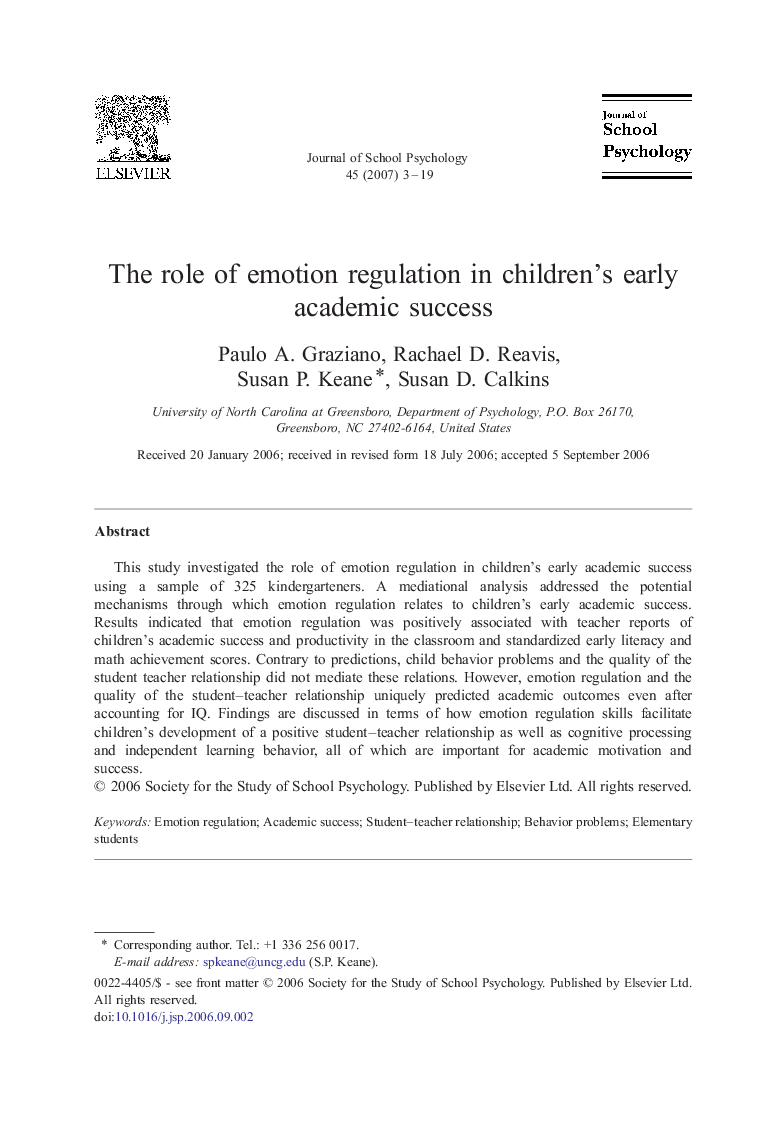| Article ID | Journal | Published Year | Pages | File Type |
|---|---|---|---|---|
| 363849 | Journal of School Psychology | 2007 | 17 Pages |
This study investigated the role of emotion regulation in children's early academic success using a sample of 325 kindergarteners. A mediational analysis addressed the potential mechanisms through which emotion regulation relates to children's early academic success. Results indicated that emotion regulation was positively associated with teacher reports of children's academic success and productivity in the classroom and standardized early literacy and math achievement scores. Contrary to predictions, child behavior problems and the quality of the student teacher relationship did not mediate these relations. However, emotion regulation and the quality of the student–teacher relationship uniquely predicted academic outcomes even after accounting for IQ. Findings are discussed in terms of how emotion regulation skills facilitate children's development of a positive student–teacher relationship as well as cognitive processing and independent learning behavior, all of which are important for academic motivation and success.
